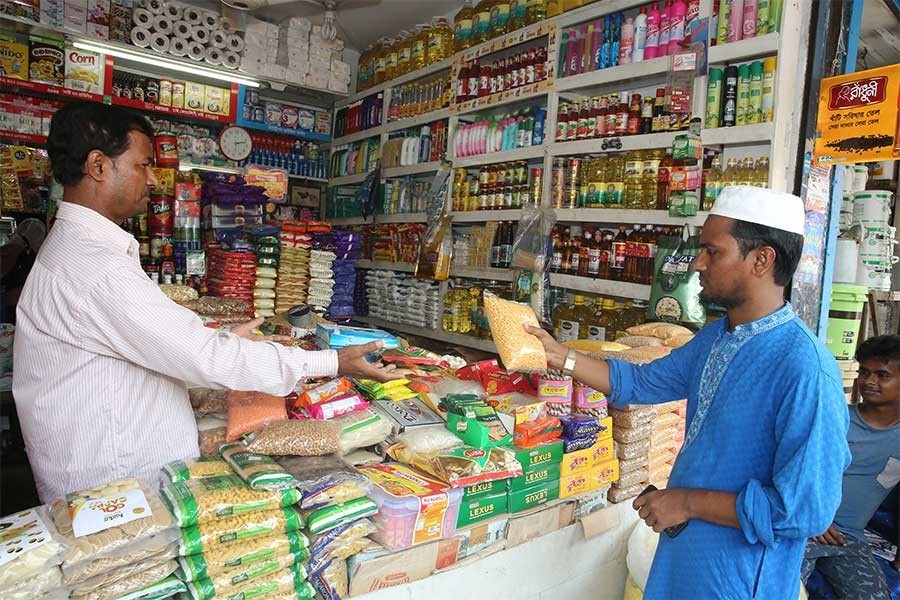The holy month of Ramadan begins in less than a fortnight. The pious Muslims of the country have started taking preparations for observing the month of fasting. As the month requires the observant to go through daylong fasts, it warrants the fasting people to remain physically strong and fit while engaged in piety. That's why the demand for protein-rich diets and those conducive to sound health conditions increases around this time. Unfortunately, dampers and obstructions created by a section of traders deprive people of these rightful gifts. Notwithstanding appeals and exhortations by the higher authorities, syndicates engaged in price-hike machinations eventually begin calling the shots in the market of special Ramadan essentials. They are mostly the food items.
In the first week of this year, none other than the Prime Minister has urged the traders not to increase the prices of essentials during the holy month. That she has placed her appeal to the businessmen much ahead of the start of Ramadan makes many take heart. These kinds of entreaties however, have over time become almost a routine exercise. It's because the manner of market manipulation has in the recent years turned so unassailable that the errant businesspeople finally remain beyond all kinds of intervention --- be they legal or related to market monitoring. In the meantime, the fasting people with fixed income find themselves in a tight spot. The government every year arranges fair-price sales of Ramadan food items. It comes as a relief to the relatively disadvantaged sections of people. But this facility has also its built-in deficiencies. Allegations are rife against the agencies concerned. The most common of them are irregular sales activities, low standard of the food items on sale, and inefficient stocks. Against the backdrop of the artificially spiked prices of the essential items at shops, the average urban consumers bank on these government-run outlets. In most cases, they are met with bouts of utter disillusionment.
In fact, it is quite unfortunate to note that the fasting month of Ramadan has increasingly become a time of worries and inconvenience over recent years. But in essence, the month is supposed to be one of peaceful reflections. The fasting period between Sehri and Iftar is the time allotted for a unique kind of prayer --- dominated by abstinences and restraints. In order to abide by these religious decrees, Sehri and Iftar demand proper observances.
The beginning of the day-long fasting with the pre-dawn Sehri thus requires sufficient food intake. Likewise, after a long day's fast, the fasting person needs equally rich and hygienic food items. The racketeering resorted to by the market syndicates during Ramadan robs greatly of the solemnity associated with the month of fasting. In a country where the Muslims in general have for centuries been attaching great importance to Ramadan, the presence of market manipulators emerges as an affront to popular feelings. In a market economy, enforcement of control measures goes against the spirit of the times. But monitoring of the market for detecting profiteering still remains a sine qua non. It's only the timely application of this measure which can free the Ramadan market of the unscrupulous elements.


